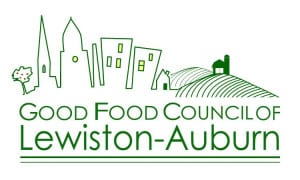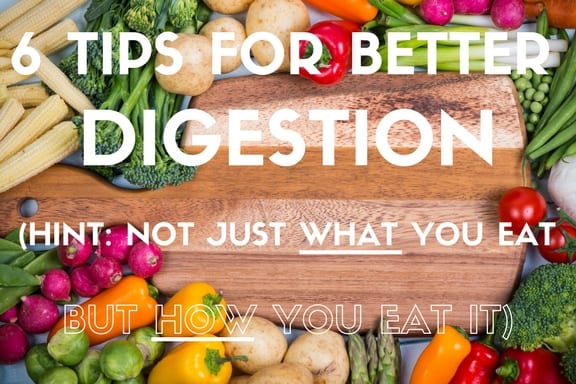
In today’s society, so many people are having digestive issues. In fact, these days one of the most common reasons for E.R. visits is stomach pain. People may suffer from heartburn, indigestion, constipation and/or diarrhea, food intolerances and sensitivities, abdominal pain, extreme fatigue after eating, and the list goes on. The first thing many people might do is grab a pill or maybe a bottle of the pink stuff, therefore, treating the symptoms after they occur. This makes sense to us, as this is what we’ve learned from our healthcare system – treating the ailments with synthetic drugs after they happen instead of preventing them from happening in the first place. Chances are if we are having digestive issues, our bodies are not properly absorbing the nutrients we are eating in food. Then, if we look at the food we are eating; highly processed, grown in nutrient depleted soil from far away and filled with preservatives and chemicals, that food is lacking good nutrition in the first place.
It’s no surprise that eating more healthier foods such as local produce will give your body more nourishment that it needs to function properly. But it’s not just what we eat, but how we eat it that can affect how our bodies digest food. If we’re eating on the go, scarfing down our food in the matter of seconds or working while we’re eating, energy and blood flow is taken away from our digestion system. Below are six tips to try to start improving your digestion and absorbing more nutrients from your food:

1) Deep Breaths: Take 3-5 deep breaths after you sit down in front of your meal before starting to eat. This will bring your stress level down a little bit. A stressed body can’t digest properly.

2) Be Grateful: Think about where your food came from and about the journey it took to get on your plate. Be grateful for mother nature, farmers, the cook and all who contributed to making it possible for you to have access to your meal.

3) Chew: Chew your food thoroughly until it is smoothie-like consistency. This can take 20-40 chews. However, don’t think pureeing your food all the time is the answer. Digestion starts in our mouth by chewing which increases bile production. The more work we do chewing, the less work our stomachs and intestines have to do. Next time you eat, count how many times you chew before swallowing to give yourself an idea of where you’re at.
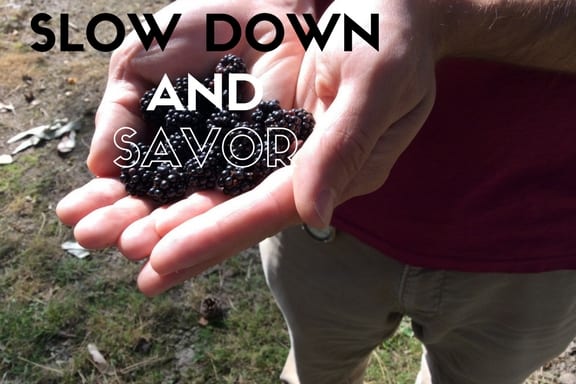
4) Slow down and savor: If you’re chewing your food more, you’ll automatically be taking more time to eat your meal. But don’t just focus on counting your bites. Savor the flavors, notice the texture, enjoy the pleasure you are feeling or any other sensations you are experiencing. This may also help you identify particular foods you might not be tolerating. If you slow down, your stomach will have time to communicate with your brain when you get full, therefore you will eat less.
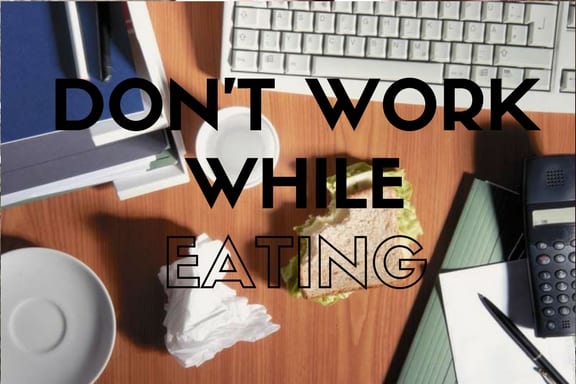
5) Don’t eat while working or with co-workers that are going to talk about work: If the first thing you say to yourself after reading this is “ya, right, how can I possibly take a real lunch break with my workload”? Then stress may be already contributing to health issues for you. It’s time to prioritize your health and put things in perspective. This is your health, your life we are talking about. Is it really impossible for you to take a lunch break? Perhaps, if you are an E.R. surgeon and need to operate on someone immediately to save their life. Do you think your boss will think you’re not working as hard? Communicate to them that you really need to take a lunch break as your health is a priority. Your boss will most likely respect this and understand that you need to stay healthy to be able to perform optimally at your job. Not to mention, they should also know if you are healthier, you’ll be saving the company money in health insurance costs. Try leaving your desk to eat but if this is the most relaxing spot you can find, log-off your computer and put headphones on with music. Move your seat so it doesn’t look like you are looking at your computer. Hopefully co-workers will get the hint that you’re trying to eat and will be less likely to interrupt you.
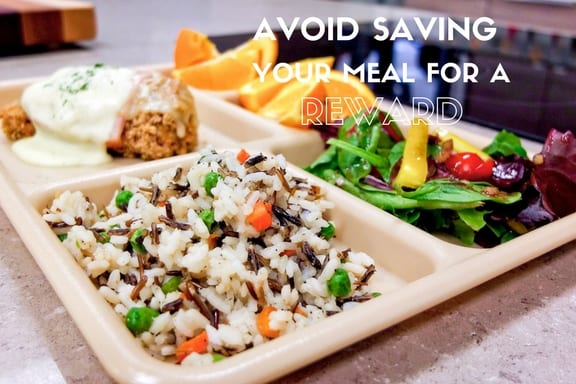
6) Avoid saving your meal for an end product or reward: Have you found yourself thinking, “I just want to finish this one thing before I eat”? Try to reframe your mindset. Eating is not a reward. It is essential for our survival. Going too long when you’re hungry or skipping meals will decrease your energy and metabolism and contribute to you eating more quickly, more amounts and poorer food choices when you finally do eat. When you feel hunger, eat. This practice of listening to our bodies and giving them what they are asking for will help us also stop eating when we are full.
Hopefully you can enjoy practicing one of these tips and be on your way to a more nourished self. After all, you only get one body.

Author:
Missy North-Drain is a SNAP-Ed Nutrition Educator at Healthy Androscoggin where she teaches local residents of all ages how to shop, cook and eat healthy on a budget. Prior to this position Missy worked in worksite wellness where she was health coaching hundreds of people at a global company of over 1000 employees. She also has years of culinary and food service management experience. Food and holistic nutrition have always been her passion. She holds a BS in Food and Nutrition with a minor in Sociology from Framingham State University. Missy truly believes that food is medicine as she has overcome personal illnesses with clean nutrition. Missy lives in Lewiston with her husband Mike and her dog Cookie Lyons.
